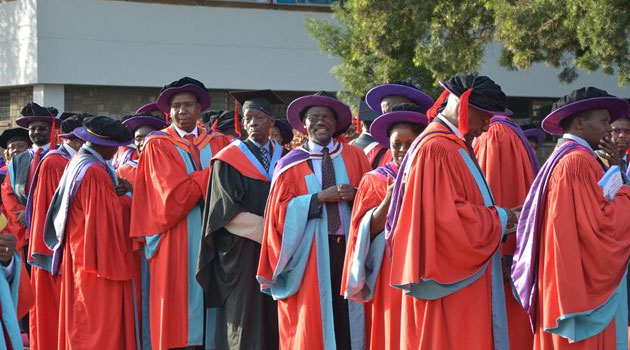
According to the study, nations failing to invest in health and education are at risk of stagnating economies and lower per capita GDP/FILE
NAIROBI, Kenya, Oct 1, – Kenya is ranked the best in the region for investing in health and education for its citizens.
This is according to a new human capital survey by Institute for Health Metrics and Evaluation that ranks Kenya places ahead of Botswana, South Africa, Tanzania, Uganda, and Ethiopia.
The findings however show that investments have however declined compared to 1990 numbers where Kenya ranked 137 out of 195 countries compared to the current 139.
“Our findings show the association – between investments in education and health and improved human capital and GDP – that policymakers ignore at their own peril. As the world economy grows increasingly dependent on digital technology, from agriculture to manufacturing to the service industry, human capital grows increasingly important for stimulating local and national economies” said Christopher Murray, director of the Institute for Health Metrics and Evaluation (IHME) at the University of Washington.
The report finds that Kenyan workers receive more education than they did in 1990.
In 2016, Kenyans spent about 11 years out of a possible 18 years measured in the study.
“Kenya rose 16 places since 1990 in terms of years spent in school; the country ranks #111 in the world. But quality of education in Kenya is lagging. While Kenya has shown improvement since 1990 and now outranks countries like Uganda, Tanzania, Rwanda, and Ethiopia in terms of education quality, it is still only 157 in the world,” the report states.
The study places Finland at the top while Turkey showed the most dramatic increase in human capital between 1990 and 2016.
“Asian countries with notable improvement include China, Thailand, Singapore, and Vietnam. Within Latin America, Brazil stands out for improvement. All these countries have had faster economic growth over this period than peer countries with lower levels of human capital improvement,” the report notes.
The greatest increase in human capital among sub-Saharan African countries was in Equatorial Guinea.
Some of the world’s most rapid improvements were in the Middle East, including Saudi Arabia and Kuwait.
According to the study, nations failing to invest in health and education are at risk of stagnating economies and lower per capita GDP.
“Measuring and ranking countries by their level of human capital is critical to focus governments’ attention on investing in their own people,” Kim said. “This study from IHME is an important contribution to the measurement of human capital across countries and over time,” said World Bank President, Jim Yong Kim.
The study, “Measuring human capital: A systematic analysis of 195 countries and territories, 1990–2016,” was published in the international medical journal The Lancet.
It is based on a systematic analysis of an extensive array of data from numerous sources, including government agencies, schools, and health care systems.


































